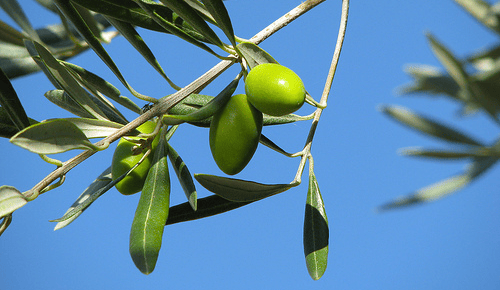In two studies recently published on Agricultural Water Management a team of scientists (among them, CMCC researchers C. Pizzigalli and P. Lionello) investigated climate change impacts on Mediterranean agriculture.
More in detail, in the paper “Impacts of climate change on olive crop evapotranspiration and irrigation requirements in the Mediterranean region” they focused on the climate change impact on olive growing considering the possible alterations of cultivable areas, phenological dates, crop evapotranspiration and irrigation requirements.
Results highlighted that potentially cultivable areas for olive growing could extend by 25% in 50 years but crop evapotranspiration and irrigation requirements are expected to increase (on average by 8% and by 18.5% respectively) over the Mediterranean. Olive rainfed cultivation could likely not be feasible in the future.
The study “Climate change and Mediterranean agriculture: Impacts on winter wheat and tomato crop evapotranspiration, irrigation requirements and yield” analyzed impacts on tomato and winter wheat crop. Impact of climate change appear to vary for different crops and areas of the Mediterranean region, and new cultivable areas might be extended prevalently in the Northern Mediterranean countries. The foreseen impact of precipitation decrease seems to be more relevant for winter-spring crops.
Read the integral version of the two papers:
- Tanasijevic L., Todorovic M., Pereira J. S. , Pizzigalli C., Lionello P.
Impacts of climate change on olive crop evapotranspiration and irrigation requirements in the Mediterranean region
2014, Agricultural Water Management, DOI: 10.1016/j.agwat.2014.05.019 - Saadi S., Todorovica M., Tanasijevic L., Pereira L. S. , Pizzigalli C., Lionello P.
Climate change and Mediterranean agriculture: Impacts on winter wheat and tomato crop evapotranspiration, irrigation requirements and yield
2014, Agricultural Water Management, DOI: 10.1016/j.agwat.2014.05.008




